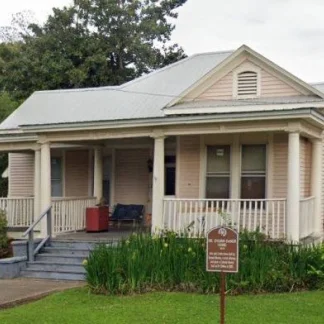Hope Center
Marksville, Louisiana, 118 South Washington street, 71351
Available Programs
- Adult program
- Program for men
- Program for women
- Total beds : 10
- Young adult program
Insurance and Financial
- Private insurance
- Self-pay options
- Medicaid
- Sliding scale payment assistance
About this Facility
Hope Center is an alcohol and drug treatment center located in Marksville, Louisiana. They are a licensed 28-day residential program that teaches the 12 Steps of Alcoholics Anonymous and the internationally recognized program of Recovery Dynamics.
Hope Center provides residential treatment and intensive outpatient programs.
Residential treatment programming at Hope Center lasts for 28 days. Those best suited for this program are individuals who need a high degree of support, structure, and monitoring at the beginning of their recovery to ensure safety and a greater chance for success. This program lays the foundation of recovery by providing evidence-based treatment through individual and group therapy. Mental health challenges will be discussed, along with medical concerns. Psycho-educational groups are provided to help participants build new coping skills, life skills, and emotional maturity.
Intensive outpatient programming at Hope Center is for individuals who have either graduated from the residential program or who can successfully participate in the program without the need for the continual monitoring that comes from inpatient or residential treatment. This program is best suited for those with mental and physical stability, and who have a need to continue with their life commitments while undergoing treatment. Individual and group therapy are offered on a regular basis. The most common schedule for intensive outpatient is to meet three times each week for several hours at a time.
Group therapy involves treatment through the process of connecting in a group setting to discuss and work through mental, emotional, and physical issues. There are a number of different group therapy modalities, including support groups, experiential therapy, psycho-education, and more.
Individual therapy creates the space to explore the psychological challenges associated with the addiction. With the help of a professional, individuals are given the space and direction to talk about and process their emotions. Often this includes unresolved trauma, anger, depression, anxiety, and the need for more control or autonomy in life.
Contact us for more information: (318) 253-8705

Contact Hope Center
Connect with Hope Center by calling their admissions team directly.
(318) 253-8705 Website Get Directions